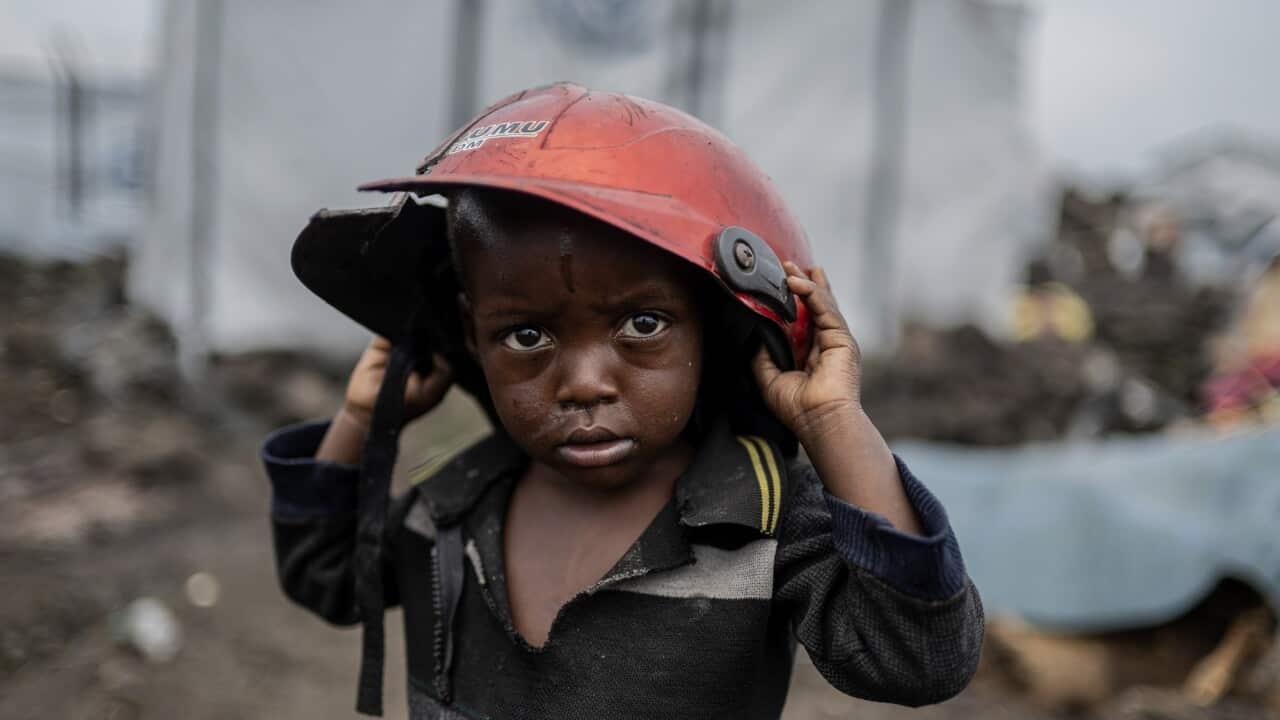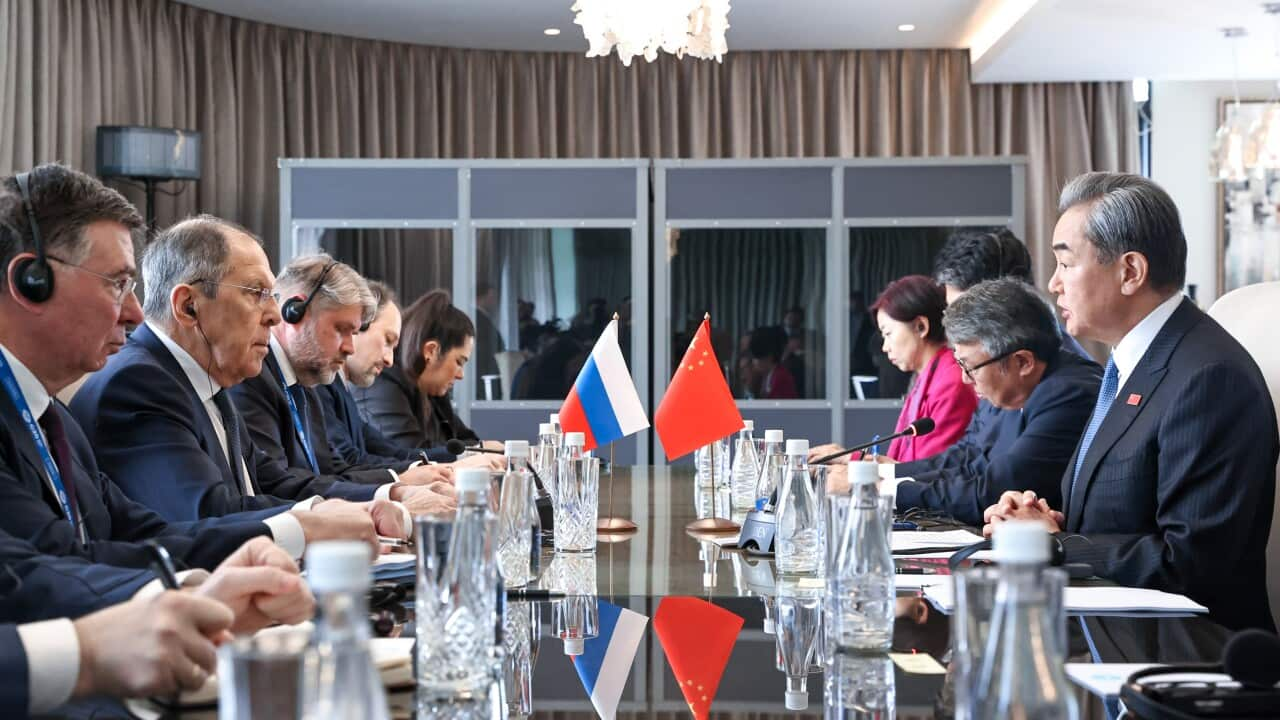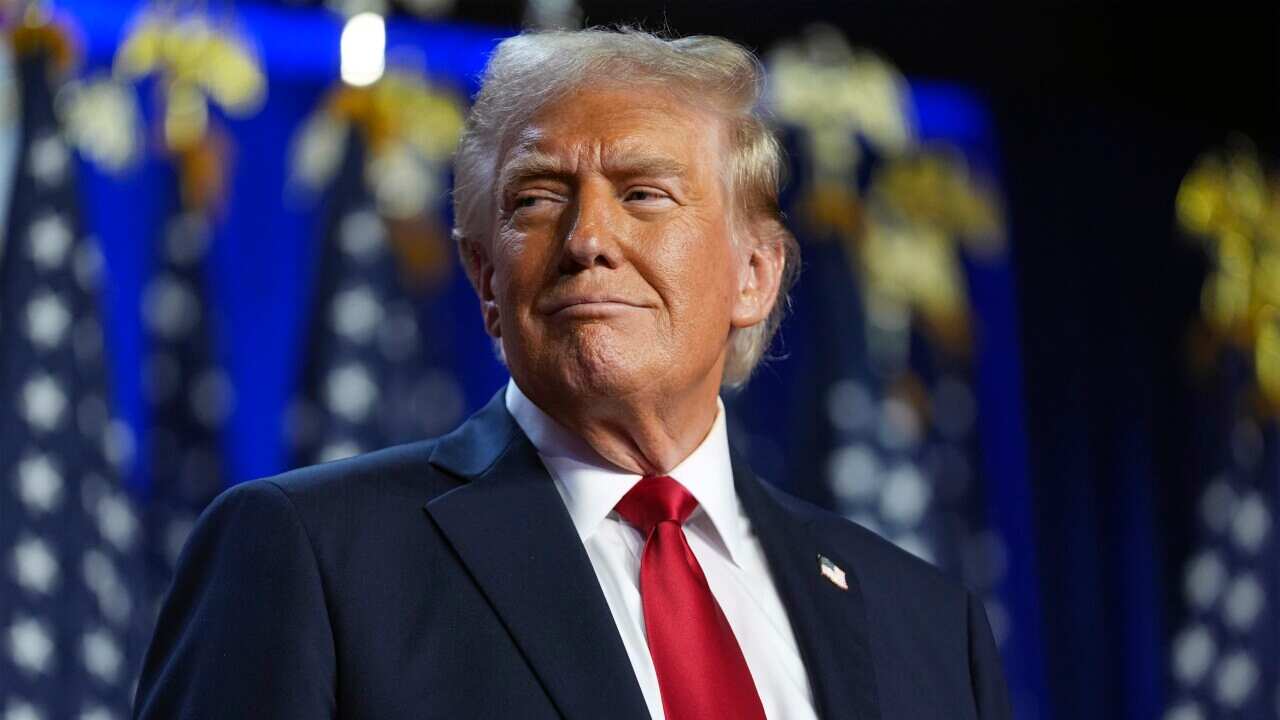The United Nations Security Council is unanimously calling for the immediate withdrawal of Rwandan troops from the Democratic Republic of Congo.
Following a rapid advancement from Rwandan backed rebels, fears are mounting over the regional implications of violence and mass displacement in the DRC.
The United Nations Security Council has for the first time condemned Rwanda for its backing of a rebel offensive against the Democratic Republic of Congo.
The M-23 rebel group, which UN experts say is supported by some 4,000 Rwandan soldiers, now controls large areas of eastern DRC.
In a unanimously adopted resolution, the security council is now calling for Rwanda to immediately withdraw its troops without preconditions.
United Nations special envoy to Congo, Bintou Keita, says there must be an immediate end to hostilities.
"Let me reiterate MONUSCO's urgent call for an immediate ceasefire and an end to hostilities without conditions by the M23, whose military actions continue to destabilise eastern Democratic Republic of Congo and threaten regional security. We call on Rwanda to end its support to the M23 and to respect the territorial integrity of the DRC (Democratic Republic of Congo), in line with the commitments made in regional peace processes."
The decades-long conflict in eastern DRC rapidly escalated at the start of January 2025, with the U-N estimating more than 480,000 people have been displaced and at least 3000 killed.
The escalation was triggered when M-23 rebels made a rapid advancement into the city of Goma in eastern DRC, a region rich in natural resources.
Now, rebel forces have captured the regions second largest city of Bukavu, with thousands fleeing the area and fears mounting over a potential regional escalation.
Bintou Keita says the amount of suffering is intolerable.
"Let us stop a moment, and condemn the intolerable degree of suffering that this conflict is causing to the people of eastern DRC, including women, girls and young people with cases of harassment, conflict-related sexual violence and killing and forced recruitment of children. There is no military solution that will end this suffering. Peace, security and development in eastern DRC require an end to violence and a commitment to inclusive dialogue and reconciliation."
Rwanda denies allegations from Congo and the UN that it supports the M-23 with arms and troops.
It says it is defending itself against Hutu militias which it accuses of fighting alongside the Congolese military.
Congo says Rwanda has used the M-23 as a proxy to loot minerals such as gold and coltan, which are used in smartphones and computers.
Earlier this week Rwanda's ambassador to the UN, Ernest Rwamucyo, told the security council that Rwanda will not take the blame.
“Rwanda cannot take the blame for the problems that DRC is, has faced endemically. As President Paul Kagame stated in Addis Ababa and I quote, ‘We have our own problems to deal with. Congo is too big for Rwanda to carry on its back’. End of quote.”
As well as passing a resolution calling for the end to hostilities, the U-N has also warned against attacks on peacekeepers in the region.
With needs increasing among displaced civilians, the UN says there is a significant shortage of basic services in displacement shelters including toilets, food and water.
UN spokesperson for the Secretary General, Stephane Dujarric, says aid workers are struggling to access people in need.
"UNHCR says there's an urgent need for shelter, food, latrines, as well as relocation for the new arrivals to sites to address overcrowding. The UNHCR and its partners are stepping up assistance and distributing warm meals and water to new arrivals. They need relief, all sorts of relief supplies."
The United Nations High Commissioner for Refugees UNHCR says in recent weeks, around 40,000 displaced people have entered into neighbouring Burundi.
UNHCR plans to move the displaced, who are being temporarily housed in an open air stadium as well as schools and churches, to an area of land where humanitarian care can be provided.
UNHCR Representative in Burundi, Brigitte Mukanga-Eno, says those entering the country are not in a good condition.
“This is the very first time that Burundi is receiving this large number of people in a matter of few days, because the increase in numbers really started on the weekend of the (February) 14th, and we have seen, particularly last week, on Tuesday, we had more than 9,000 people who crossed in one day. So, this kind of large influx is really the first time in many years for Burundi - the last one was in early 2000. So, everyone is overwhelmed, the government, but also the humanitarian partners in the country. We are trying our best, but the people who are arriving are coming quite in very bad shape, particularly for those coming through the Rusizi River.”
As relief workers attempt to deal with the worsening humanitarian crisis in Burundi, Ms Mukanga-Eno says people are dying from exhaustion.
“The other day, we had even a case of a woman who was transporting her children and not knowing that they were already dead actually. When she dropped them in the camp, two of her children just passed on, based on exhaustion and so we have, the conditions are very bad for the people who are arriving. We have mostly women and so many children - so, so many children.”













